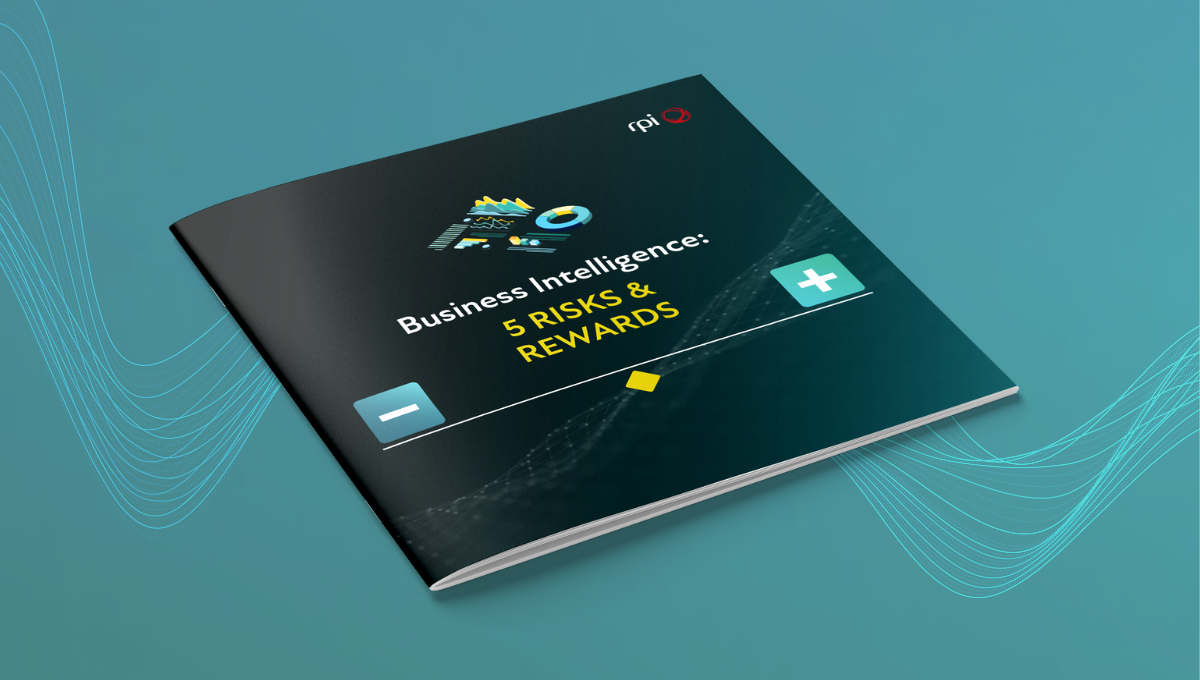A strong business intelligence (BI) initiative is transformative for your organisation, but you can’t avoid the truth that it comes with risks. There are plenty of ways it can go wrong that will keep the project from reaching its full potential.
The good news is that those pitfalls are easily avoided with the right teams, the right strategy, and the right goals. Here’s our guide to navigating the potential pitfalls of BI transformation, to ensure you have the greatest return for the time, effort, and money that you invest.
Risk 1: Resistance to change
Teams who don’t understand the value of BI can feel hostile towards the project, and those who are accustomed to certain BI tools could be reluctant to change them. If new methods are forced on unwilling departments, there’s little chance that they will use them well. Using BI badly or half-heartedly could be worse than not using it at all.
BI is where data meets commercial, and it’s where you need talent with authority on both. Leaders need to be able to speak both to sales-minded teams and to data-focused people and speak in a language that each understands. That way, they can communicate change as a colleague and an equal, not impose it as an out-of-touch authority.
Reward 1: Stronger data culture
With the right talent steering the implementation and communication of a BI initiative, a company’s data culture can start to thrive.
A strong data culture means that you’re using data intelligently and strategically to make business decisions, and it allows data to inform everyday actions. It also means that processes and habits with data are standardised, so that data remains clean and useful however much it gets moved, shared, or accessed.
Risk 2: Poor data quality
Whatever tools you have, they’ll be of no benefit if the data itself is poor. If large slices of data are missing, duplicates are rife, or the business is overwhelmed with data that’s not actually useful, the best BI system in the world would be useless.
Responsibility and accountability must be part of your data culture. That means that a) everyone knows and feels that data cleanliness and quality is part of their role and b) you have expert data guardians who can oversee and champion that culture.
Reward 2: Accurate, game-changing insights
When your data is clear, accurate, and timely, you will start to see patterns and trends that either vindicate your strategy, allowing you to confidently commit time and budget to it, or reveal truths and realities you weren’t aware of, so you can adjust your strategy. Either way, that knowledge unlocks enormous growth potential.
Risk 3: Escalating scope
Enthusiasm for a new BI regime can lead to ‘too much, too soon’. The scope of the project grows as users make small additions that soon build up, endangering the timelines of the project, as well as the quality
Those in charge of the project need a deep understanding of what data will be useful, what level of priority it should hold, and what the impact of project additions will be. Once again, that requires a high level of data literacy combined with commercial business sense.
One example would be making data-driven decisions around your environmental commitments. Each of the three scopes of business emissions is a complicated picture, which interacts with the others and contains hidden, complex impacts. In the urgency to address your ESG responsibilities, it is easy to rush in and quickly find yourself overwhelmed with data.
Reward 3: Sustainable change
When you focus on one priority at a time, change remains manageable, and most importantly your business intelligence remains accurate and useful. By maintaining control over the scope, speed, and direction of the project, you can make sure it serves the business, rather than seeing the business serve the project.
Back to the other type of sustainable change —ESG — you can keep the transformation viable by tackling scopes one to three with a logical approach that lays out all environmental impacts, gathers meaningful data on each, sets out the highest priorities for change, and then allocates a realistic time frame and resource allocation to each.
Risk 4: Poor adoption
While active opposition is a huge challenge, at least it identifies itself. Apathy can be a greater threat — you don’t know it’s there until the project is well underway, and the root causes can be mysterious.
Either you haven’t effectively communicated the benefits of the project, or sufficiently trained all teams in the BI processes, or there are unanticipated weaknesses in the user experience of your tools.
Reward 4: Increased accountability and ownership
When you involve all of your teams in BI transformation they are more likely to:
- Appreciate the need for change
- Raise any concerns
- Feel a sense of ownership and responsibility for data
- That means better results and a smoother business intelligence function.
Risk 5: Inflexibility
Purpose and focus are vital for your BI transformation, but if the scope or remit is too rigid, it can’t account for changes in your business, which is particularly problematic in fast-moving industries.
Having experts in your team who know when change is necessary (and when it’s not) means that you can be sensitive and responsive to commercial developments, while avoiding getting distracted by endless modifications.
Reward 5: More agile decision-making
Implemented and used well, business intelligence improves your agility. Monitoring trends and patterns in your own company and the wider commercial landscape enables you to respond quickly and strategically to new challenges and opportunities.
Risk 6: An expensive BI initiative that doesn’t live up to expectations
If you don’t have a well-conceived strategy, and the skills in-house to guide the project, your business intelligence initiative could be a very expensive waste of time.
Reward 6: A commercially effective data-driven insight into your business
When all decision-makers and stakeholders are part of the project, your software solution is the best fit for your business, and the project is guided by those who truly understand the commercial reality and utility of data, business intelligence can transform your company.
RPI has a network of business intelligence and commercial transformation experts looking for their next role.
Contact people@rpint.com.



